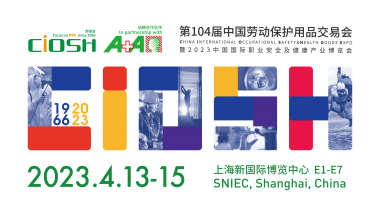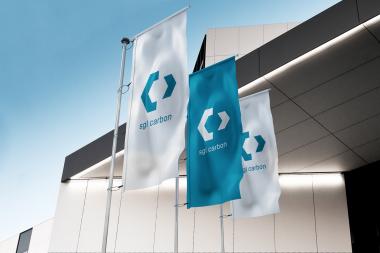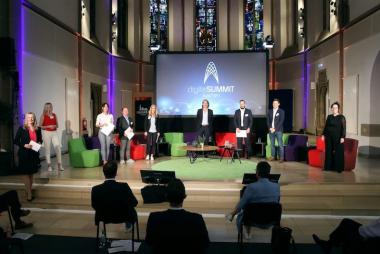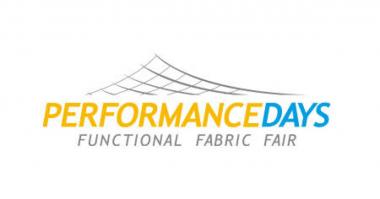Comeback of CIOSH trade fair in Shanghai
As a trade fair for safety and occupational health in China, the 104th China International Occupational Safety & Health Goods Expo (CIOSH 2023), organized by China Textile Commerce Association (CTCA) and Messe Düsseldorf (Shanghai) Co., Ltd. (MDS), will be grandly held at the Shanghai New International Expo Centre (SNIEC) Hall E1-E7 from 13-15 April 2023. Following three years of epidemic prevention and control measures, the situation has stabilized in China, allowing the labor protection market to enter a phase of rapid recovery and rebound. CIOSH 2023 will attract over 1,500 exhibitors from 14 countries, showcasing their latest protective equipment and technology in an exhibition area exceeding 80,000 square meters.
Integrating Online and Offline Platforms
CIOSH 2023 encompasses four major sectors: Safety at Work, Security at Work, Health at Work, and Emergency Rescue Management. Renowned domestic and international exhibitors, including 3M, Honeywell, Ansell, SATA, JSP, MSA, DELTAPLUS, Lakeland, Cortina, UVEX, CM Chaomei, Xing Yu Gloves, DS, East Asia Glove, Hanvo, SOMO Zhongmai Safety, SAFETY-INXS, and TELPS, will assemble on site. At the same time, CIOSH 2023 has introduced an innovative online platform - CIOSH VIRTUAL. By offering online displays, live streaming, interactive features, and real-time communications, it breaks time and space constraints, facilitating exhibitors and visitors to continue their business exchanges and cooperations beyond the physical exhibition. So far, nearly 1,300 companies have joined the CIOSH VIRTUAL, showcasing more than 3,000 products online and attracting over 70,000 views.
CIOSH Industry Technical Seminar, Sustainable Development Emerges as the Key Focus
The annual Industry Technical Seminar, held concurrently with CIOSH, serves as a platform for professionals to discuss product solutions, share industry insights, and exchange ideas on relevant policies. In 2021, China integrated climate change mitigation measures into its 14th Five-Year Plan, established a 2030 carbon peaking action plan, and proactively pursued the goal of carbon neutrality by 2060. Under the development objectives of "carbon peaking" and "carbon neutrality," the sustainable development of the personal protective equipment (PPE) industry has become the primary theme of this year's seminar. Experts from China Carbon Low-carbon Certification (Jiangsu) Co., Ltd., China Certification Centre, Inc., and SGS-CSTC Standards Technical Services Co., Ltd., will examine related policies, the effects of "carbon neutrality" on the PPE industry chain and the industries using PPE from different angles. They will also explore the future direction of PPE and offer professional guidance for the transformation of relevant enterprises.
Fall Protection Zone
Falls from height are one of the most common accidents that cause serious injury or death to workers. Effective fall protection requires not only protective equipment, but also professional instructions and training. Therefore, CIOSH set up a new Fall Protection Zone in 2021, which received unanimous acclaim. CIOSH 2023 has continued to invite SKYLOTEC, rothoblaas, JECH, Mode and NTR Safety, five companies that specialize in protection at height, to conduct on-site demonstrations on fall testing, fall protection solutions and aerial rescue, and provide visitors with the most professional fall protection guidance and training.
Occupational Health
CIOSH has always implemented the strategy of expanding the business scope in a diversified way, which devotes itself to providing innovative opportunities and new driving forces for the sustainability of the occupational safety and health industry. This year, focusing on the "occupational health" sector, the exhibition will launch an Ergonomics Zone and an Exoskeleton Technology Zone for the first time.
China International Occupational Safety & Health Goods Expo CIOSH Messe Düsseldorf A+A work safety health and safety personal protective equipment Protective Textiles
Messe Düsseldorf GmbH



























